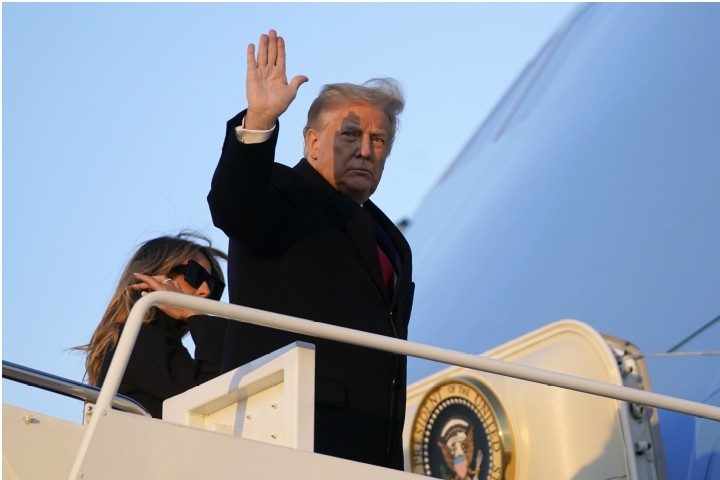
The president’s critics are once again melting down at moves from the Trump administration in what they firmly believe are the last days of the controversial head of state’s term.
According to e-mails obtained by The Hill, the administration’s Office of Management and Budget (OMB) is considering changes to the current budgeting process under which agencies must spell out their policy goals and show progress in achieving them.
OMB reportedly plans to craft a memo in the coming weeks to overhaul how agencies handle strategic planning and making progress toward their goals in order to qualify for congressional funding.
One source was perplexed at what they considered an unorthodox step, arguing that the existing mechanisms “are in place to really make government, ideally, more efficient.”
“It is co-opting the prerogative of the Biden administration to mold its own budget process,” complained Robert Shea, associate director at OMB during the George W. Bush administration who is now a principal at consulting firm Grant Thornton LLP.
“It’s a weird time to do it,” he added.
Shea was speaking in reference to OMB’s move to revise Circular A-11, a thousand-page document federal agencies must use when compiling their annual budget requests. The key provision being targeted by the Trump administration requires agencies to justify their funding requests by showing that they are making progress on their goals.
In Shea’s view, agencies sometimes view the performance measures as busy work that further complicates the budgeting process, but he asserted that it’s nonetheless important to ensure agencies reach their goals and remain accountable.
“All of this is embedded in here because it represents the priorities the administration is trying to accomplish, and of course the budget is one of the principal tools that they have to get stuff done,” he said.
“If performance measures are pulled out of A-11, the White House has lost a lot of leverage in getting agencies to take that threat seriously.”
OMB acknowledged that it is updating procedures, but assuaged concerns that they would interfere with the effectiveness or accountability of federal agencies.
The Hill notes:
When reached for comment, OMB pushed back against the notion that it would entirely strip strategic planning and performance measures from the budget guidelines — something Congress required with the Government Performance and Results Act (GPRA). But it acknowledged that changes are in the works.
The requirements in the 1993 law have “failed to be effective or drive performance and transparency,” an OMB spokesperson told The Hill by email, adding that the statute has not been used meaningfully by Congress, the White House or the public.
“To fix these failures, we are updating how GPRA is implemented so there is actual compliance, and not the current check-the-box-work that accomplished nothing — to the point that even Congress has stopped paying attention to the information that costs taxpayers hundreds of thousands of dollars to produce and distracts from other important efforts,” the spokesperson said.
Washington insiders worry about the changes, in part because this would be the second update this year. Updates typically happen only once a year.
“It does regularly go through updates, but this one feels different and more substantial…. No one knew they were working on updating it at all,” said the source familiar with the discussion, adding, “This is very close to the transition and is not normally when you’d be looking to revise this.”
Of course, this is assuming that Joe Biden will enter the Oval Office on January 20, which is still uncertain.
Even should that be the case, a Biden administration might find that OMB is stacked with Trump holdovers.
This is due to an executive order from President Trump in October that created a new class of federal employees who would not be subject to the same civil-service protections offered to career staff.
The order says “agencies need the flexibility to expeditiously remove poorly performing employees from these positions without facing extensive delays or litigation.”
It is thus easier for the administration to fire long-term career staff while allowing the president’s appointees to remain as part of the government.
At OMB, the new classification has already been widely used, with the agency requesting to transfer 88 percent of its workforce, 425 people, into the new category.
As with recent changes in the Department of Defense, what this ultimately comes down to is an attempt by the Trump administration to remove career bureaucrats and members of the Washington swamp while enabling the system to run more efficiently.
It’s no wonder members of the establishment are panicking.




